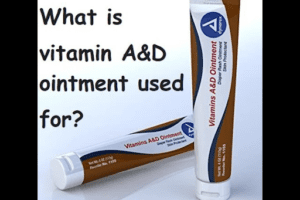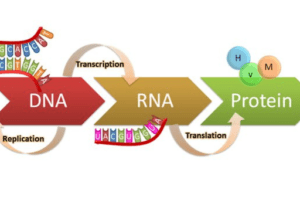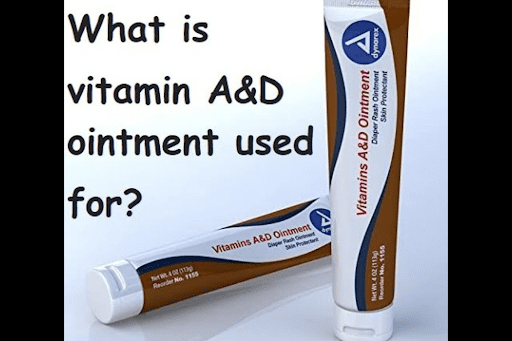Ever wondered what those little tubes of orange and white ointment are for? They’re actually a combination of vitamins A and D, and they can do wonders for your skin!

Let’s dive into what these vitamins can do and why they’re often used in skincare products.
Vitamin A: A Skin Superpower
Vitamin A is a nutrient essential for overall health, but it also plays a crucial role in maintaining healthy skin. This vitamin acts as a catalyst for various skin processes, promoting cell regeneration, reducing dryness, and even combating acne.
Promoting Skin Cell Regeneration
One of the most remarkable benefits of vitamin A is its ability to stimulate the production of new skin cells. This process, known as cell regeneration, is vital for wound healing and the repair of damaged skin. When you experience cuts, burns, or other skin injuries, vitamin A helps to expedite the healing process by encouraging the growth of fresh, healthy skin cells.
Reducing Dryness and Flakiness
Dry, flaky skin can be both uncomfortable and unsightly. Vitamin A helps to alleviate these symptoms by improving the skin’s moisture barrier. This barrier acts as a protective layer, preventing excessive moisture loss and keeping the skin hydrated. By strengthening this barrier, vitamin A helps to reduce dryness, leaving your skin feeling soft, supple, and smooth.
Treating Acne
While the exact causes of acne are complex, vitamin A has been shown to be effective in treating this condition. Certain formulations of vitamin A, such as retinoids, can help to reduce inflammation, unclog pores, and prevent the formation of comedones (blackheads and whiteheads).
Vitamin A is a versatile nutrient that offers numerous benefits for skin health. By promoting cell regeneration, reducing dryness, and combating acne, vitamin A can help you achieve a radiant, youthful complexion. If you’re looking to improve the overall health of your skin, incorporating vitamin A into your skincare routine may be a wise choice.

Vitamin D: A Sun-Kissed Essential for Skin Health
Vitamin D, often referred to as the “sunshine vitamin,” is essential for various bodily functions, including bone health, immune function, and muscle strength. However, its role in maintaining healthy skin is often overlooked. Vitamin D plays a crucial part in regulating skin cell growth, differentiation, and inflammation, contributing to a radiant and youthful complexion.
Supporting Skin Health
Vitamin D is involved in the complex process of skin cell growth and differentiation. It helps to regulate the production of new skin cells and ensures that these cells develop properly. This is essential for maintaining a healthy skin barrier, which protects the body from harmful environmental factors such as bacteria, viruses, and pollutants. Additionally, vitamin D can influence the production of melanin, the pigment that gives skin its color. Adequate vitamin D levels can help to support healthy pigmentation and prevent conditions like hyperpigmentation or hypopigmentation.
Reducing Inflammation
Inflammation is a natural response to injury or irritation, but excessive inflammation can lead to various skin problems, including redness, itching, and acne. Vitamin D has potent anti-inflammatory properties that can help to soothe irritated skin and reduce inflammation. By modulating the immune response, vitamin D can help to prevent excessive inflammation and promote a healthier, more balanced complexion.
In summary, vitamin D is a vital nutrient for skin health. It plays a crucial role in regulating skin cell growth, differentiation, and inflammation. By ensuring adequate vitamin D levels, you can support a healthy skin barrier, reduce inflammation, and promote a radiant complexion.
Common Uses of Vitamin A and D Ointment
Vitamin A and D ointment is a versatile topical medication with several common applications. This combination of vitamins offers a range of benefits for skin health, making it a popular choice for treating various skin conditions.
Diaper Rash
One of the most common uses of vitamin A and D ointment is to treat diaper rash in infants. Diaper rash is a common skin irritation caused by prolonged contact with urine and feces, leading to redness, soreness, and sometimes even blisters. The soothing and protective properties of vitamin A and D can help to alleviate diaper rash symptoms and promote healing.
Dry Skin
Dry skin is a common complaint, especially during colder months or in regions with low humidity. Vitamin A and D ointment can be an effective remedy for dry, cracked skin. The moisturizing properties of these vitamins help to hydrate the skin, reducing dryness and flakiness. Regular application can improve skin texture and prevent further irritation.
Minor Cuts and Burns
Vitamin A and D ointment can also be used to treat minor cuts and burns. The vitamins help to promote wound healing by stimulating the production of new skin cells and reducing inflammation. This can help to prevent infections and speed up the recovery process.
Skin Irritation
Vitamin A and D ointment can be applied to soothe skin irritation caused by various factors, including allergies, environmental irritants, or mild sunburn. The anti-inflammatory properties of these vitamins can help to reduce redness, itching, and swelling, providing relief from uncomfortable skin conditions.
Vitamin A and D ointment is a versatile topical medication with a wide range of applications. Whether you’re dealing with diaper rash, dry skin, minor injuries, or skin irritation, this ointment can offer effective relief and promote skin health.
Different Formulations
Vitamin A and D ointments are available in various formulations, each with its own advantages and disadvantages.
- Ointments: Ointments are thick and greasy, providing a strong moisture barrier. They are often preferred for treating dry, cracked skin or severe skin conditions.
- Creams: Creams are a lighter consistency than ointments, making them easier to apply and less greasy. They are suitable for treating milder skin conditions and are often preferred for sensitive skin.
- Lotions: Lotions are the lightest of the three formulations, making them ideal for everyday use and for treating mild skin irritations.
The choice of formulation may depend on the specific skin condition, personal preference, and desired level of moisture. It’s essential to select the formulation that best suits your individual needs.
Potential Side Effects
While vitamin A and D ointment is generally safe for most people, it’s important to be aware of potential side effects. Although rare, some individuals may experience mild skin irritation or allergic reactions. Common side effects may include:
- Redness
- Itching
- Burning sensation
- Dryness
If you experience any adverse effects while using vitamin A and D ointment, it’s essential to discontinue use and consult with a healthcare professional. They can assess the situation, determine the cause of the reaction, and recommend alternative treatments.
Conclusion
Vitamin A and D ointment is a valuable addition to your skincare arsenal. This versatile topical medication offers numerous benefits for skin health, including promoting cell regeneration, reducing dryness, treating acne, supporting skin health, and reducing inflammation. Whether you’re dealing with diaper rash, dry skin, minor injuries, or skin irritation, vitamin A and D ointment can provide effective relief and promote a healthier, more radiant complexion.
However, it’s essential to choose the appropriate formulation, be aware of potential side effects, and consult with a healthcare professional if necessary. By incorporating vitamin A and D ointment into your skincare routine, you can enjoy the many benefits it offers for your skin.







